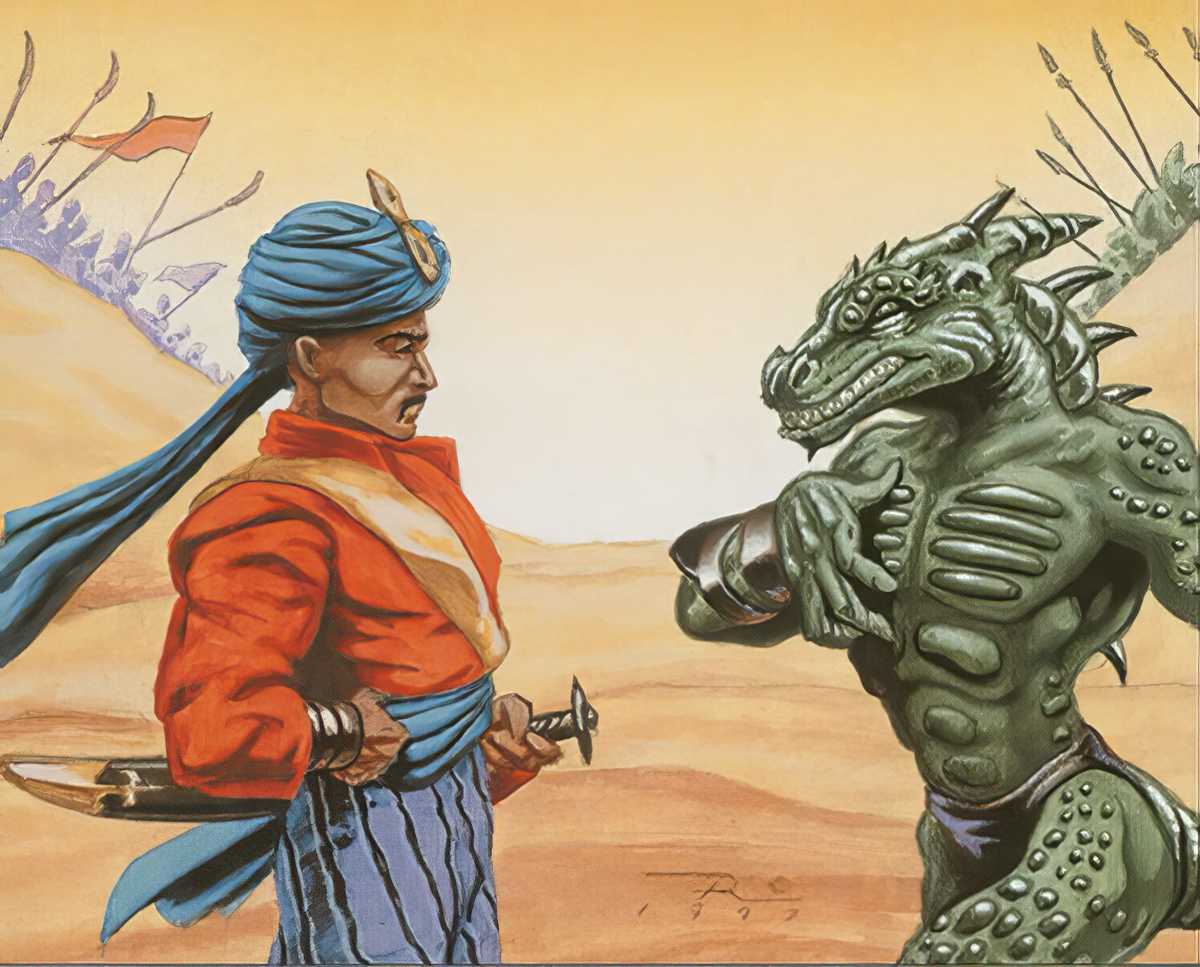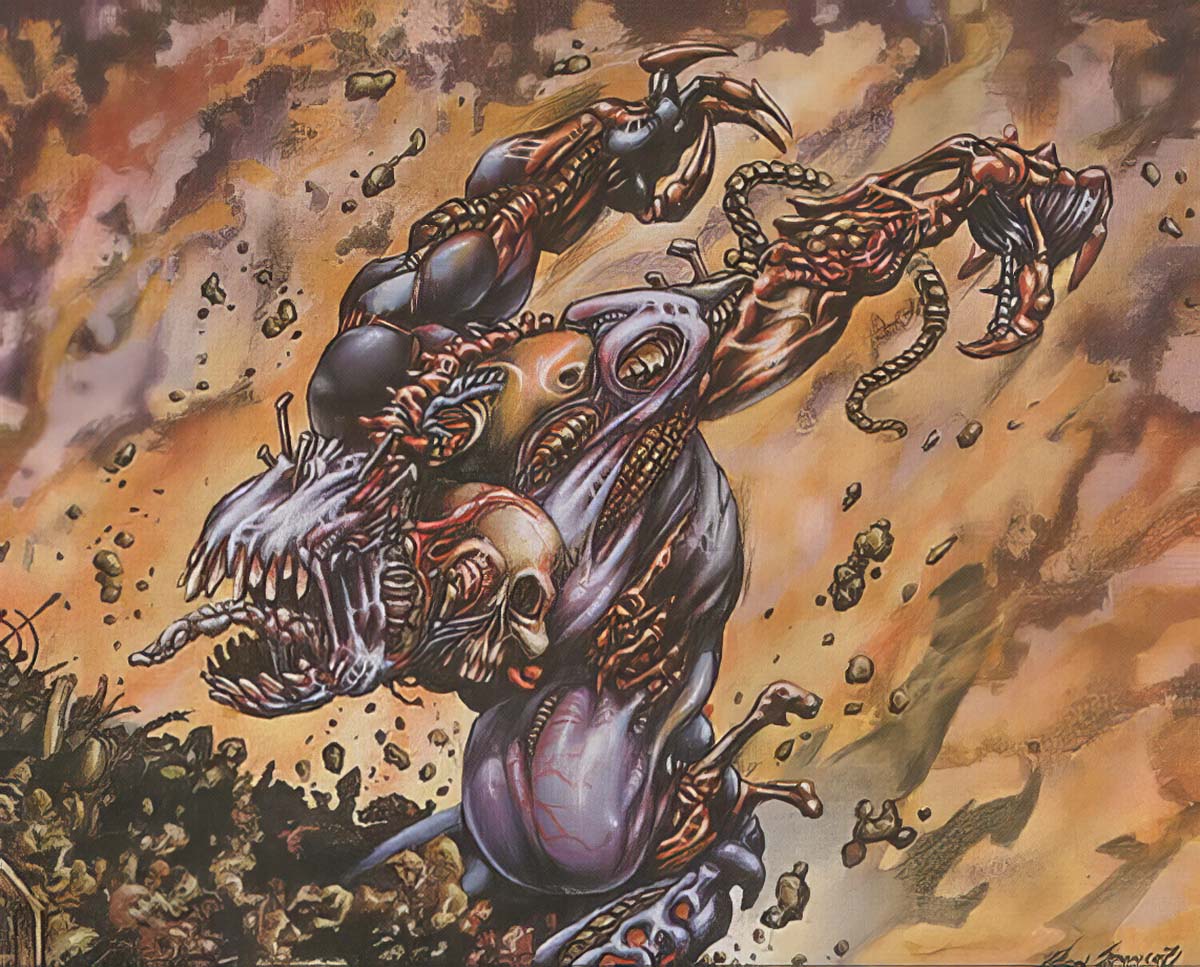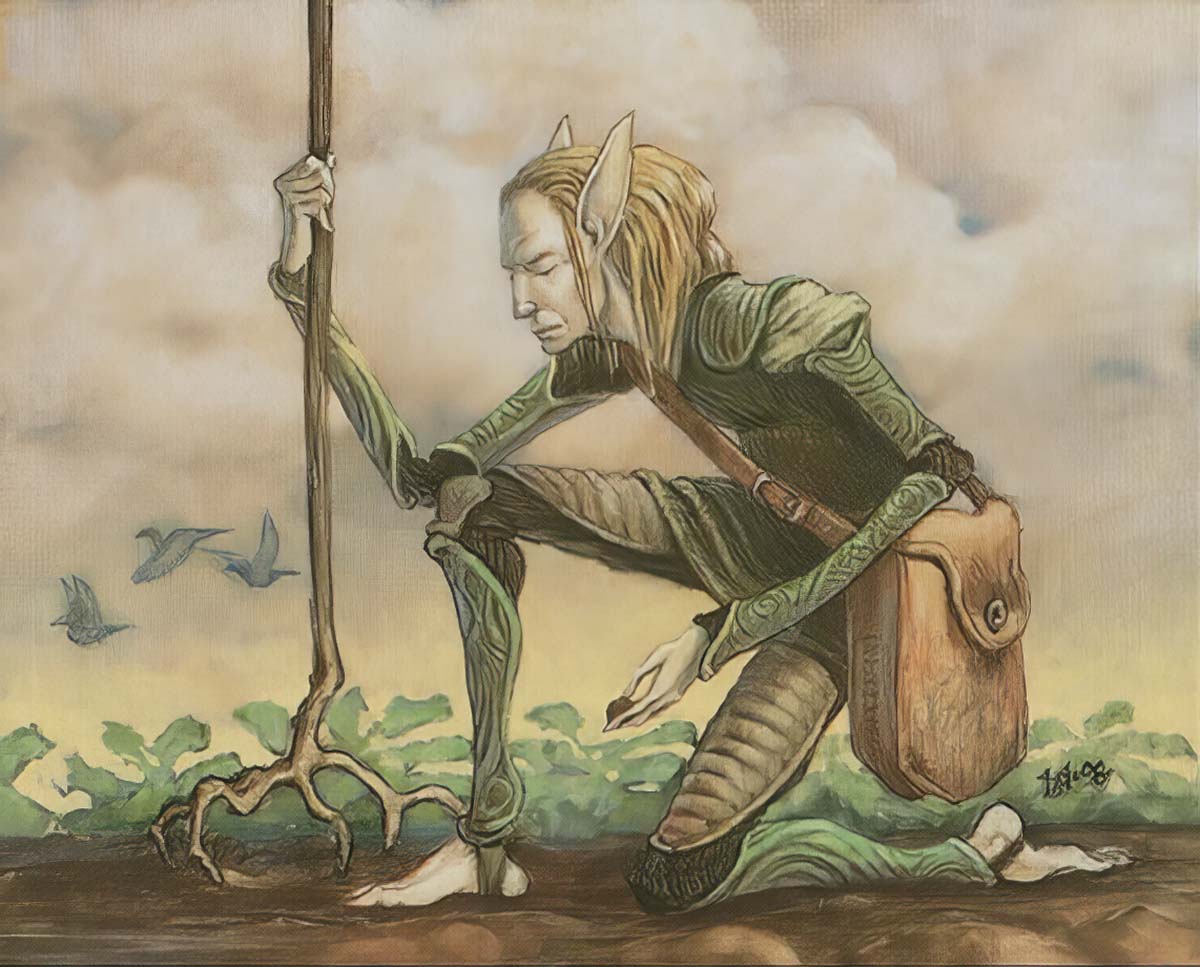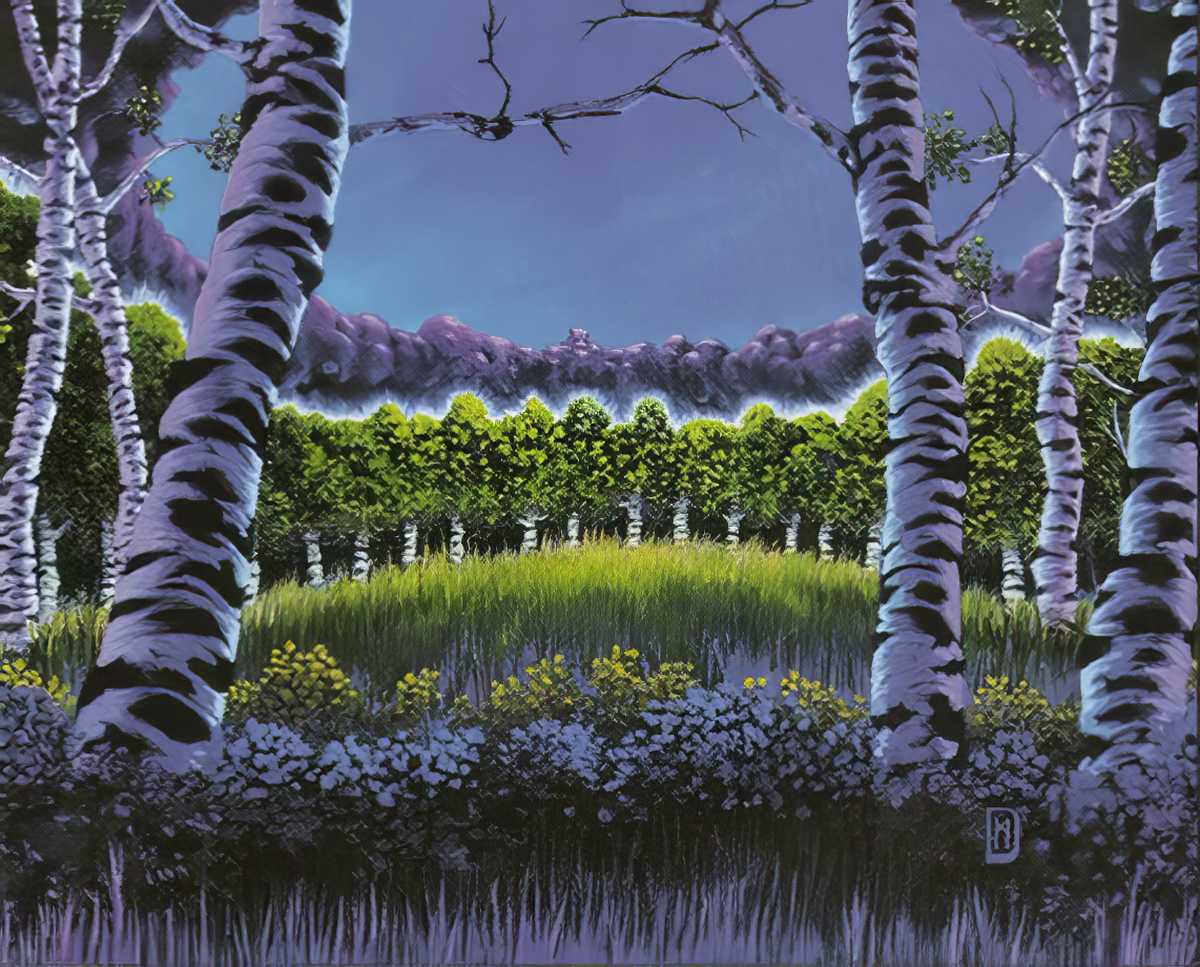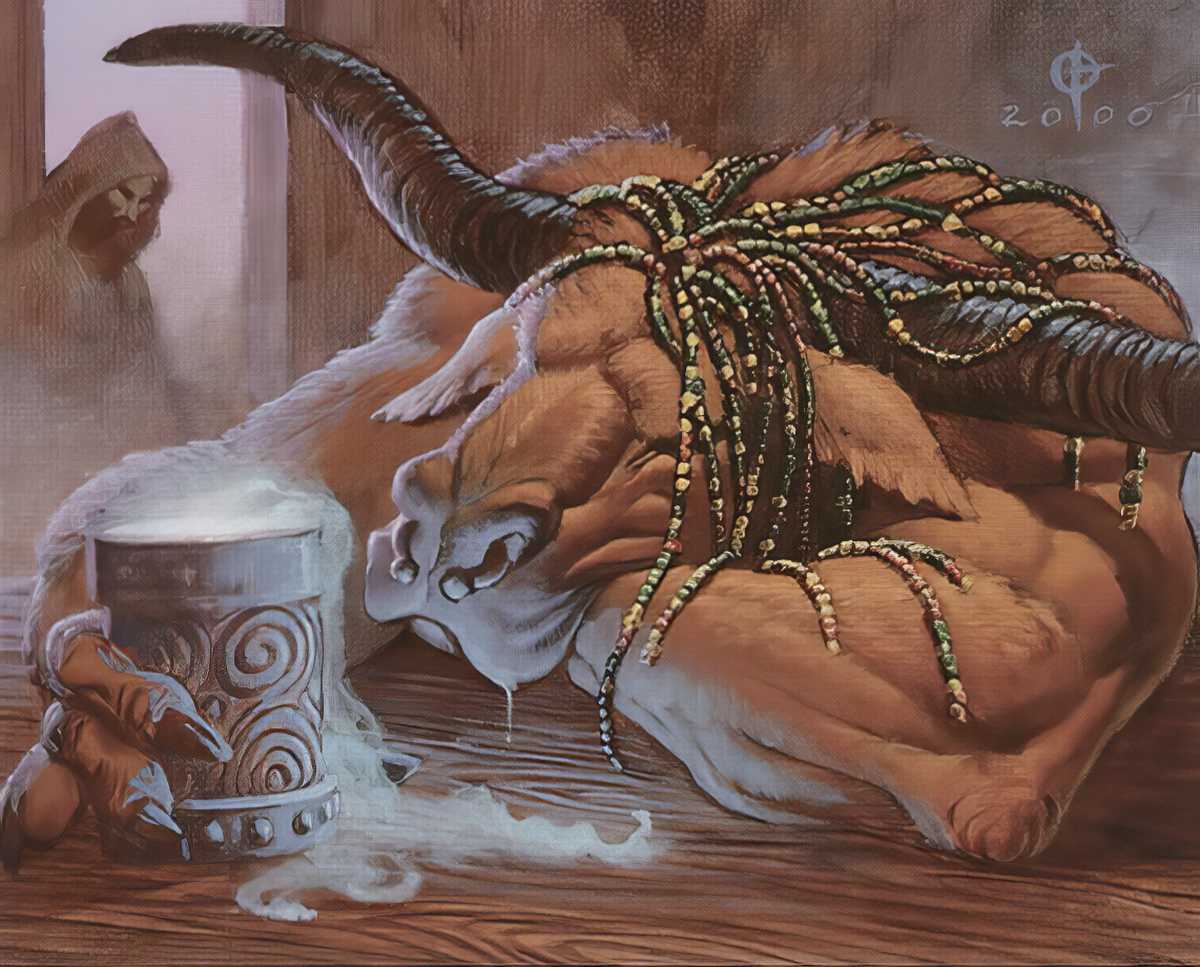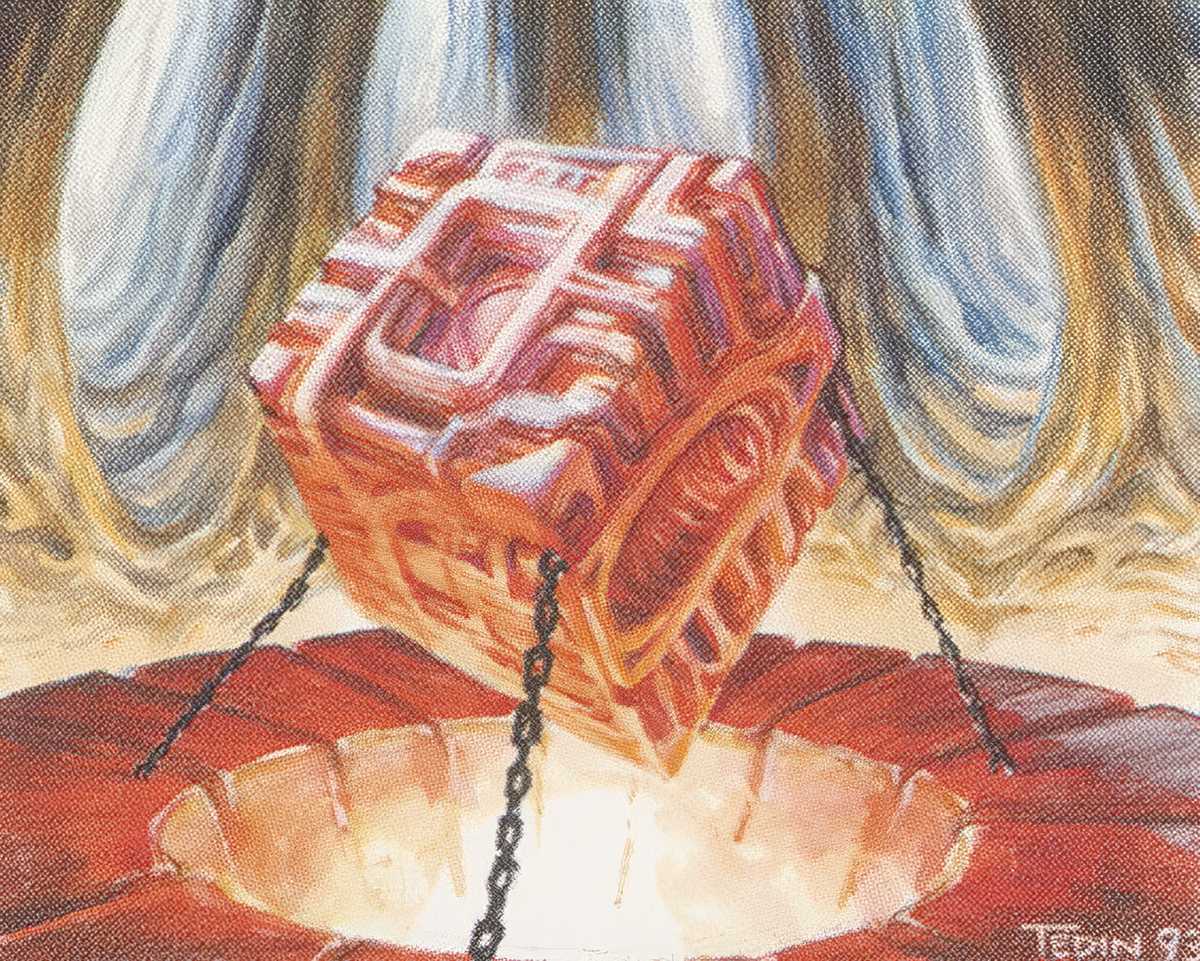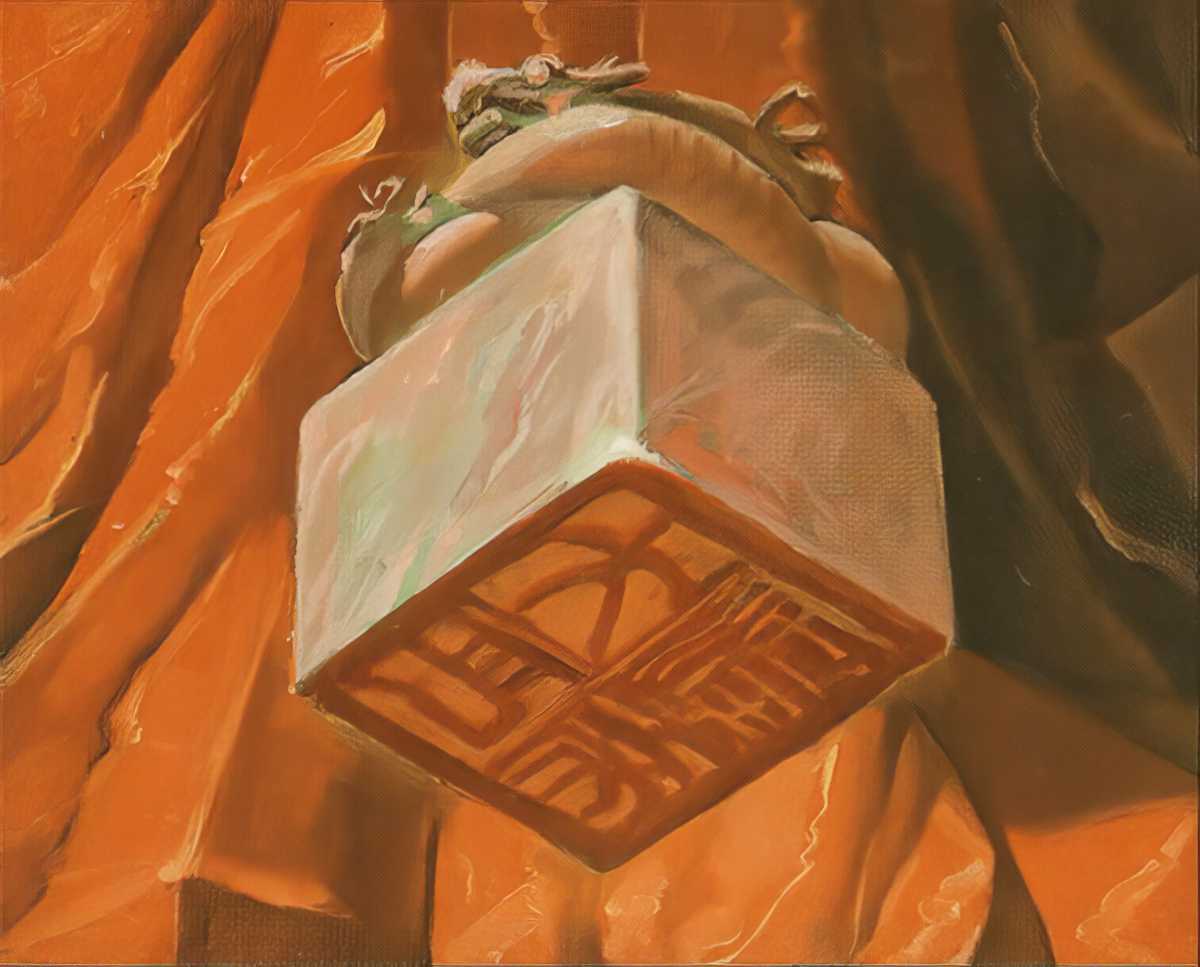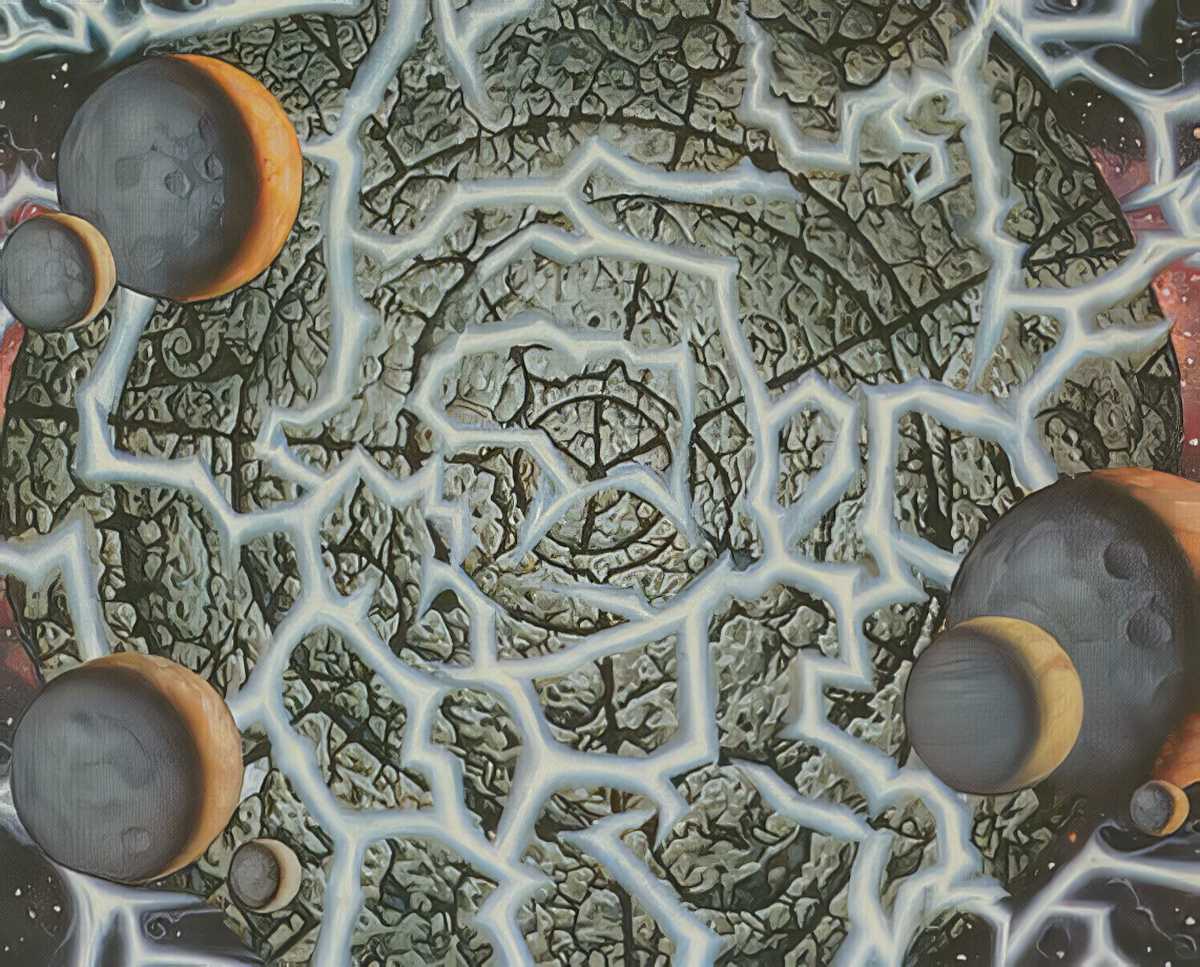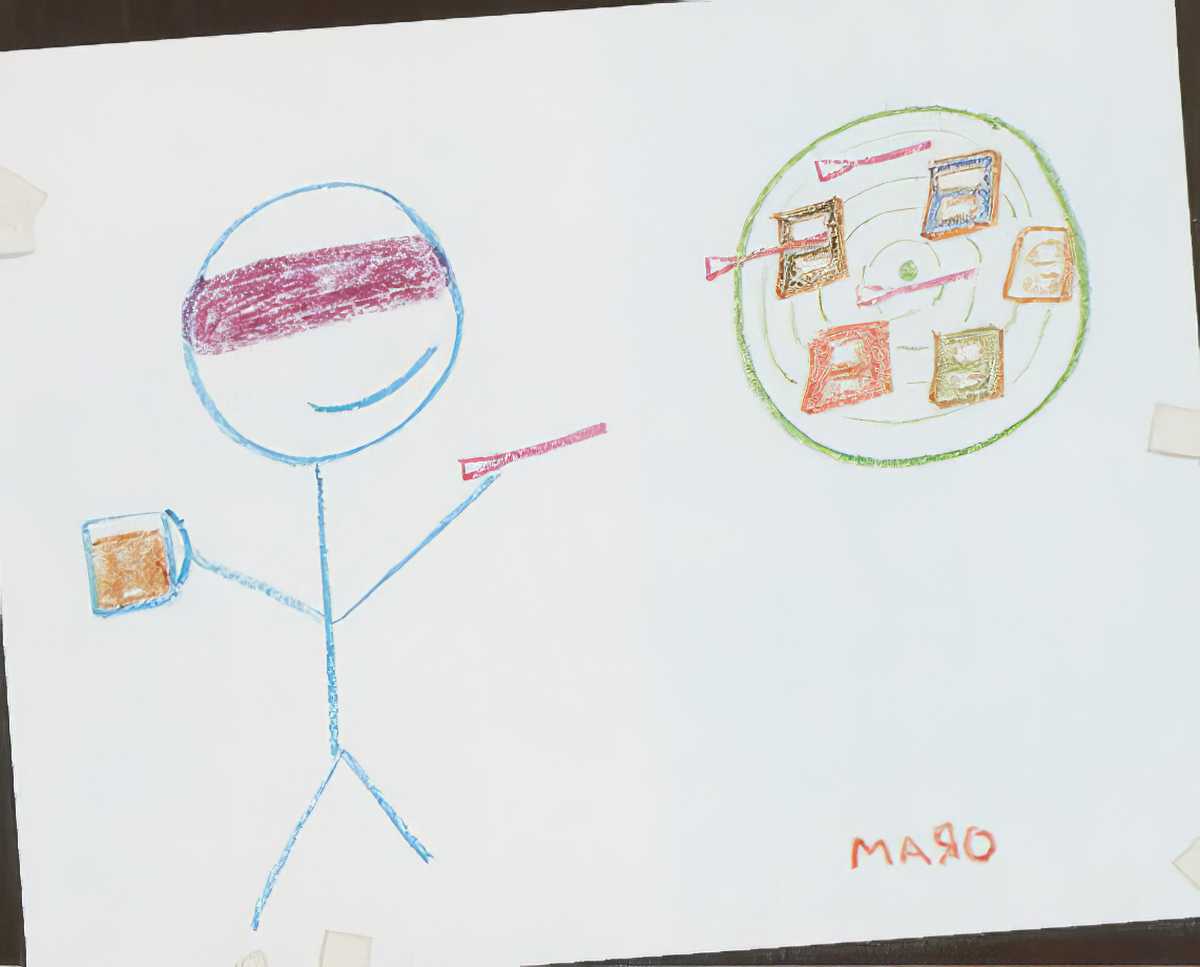Single Card Explanations
Protean Hulk
Protean Hulk will be banned from the format because even without Flash he provides a basis for a viable combo deck. By reanimating and sacrificing Hulk the combo engine stays nearly the same. This problem could only be avoided by banning other cards like Entomb. We chose to ban Hulk and not Entomb, because Entomb is “broken” with no other card in the format, but can be put to good use in many decks, while Hulk will always be merely a combo piece. Thus banning Entomb would limit deck building far more than the absence of Hulk does. This decision was based on the same argumentation as the banning of Worldgorger Dragon.
Flash
Flash gets banned to get around similar combo decks which could otherwise surprisingly emerge in between two banning seasons if other abuseable creatures hit the format in the future.
Balance
Unbanning Balance did not have the desired effect of improving control decks in the format. Instead of that Balance was abused by combo decks as the ultimate no-brainer creature removal. Furthermore the stax deck abused Balance as a combination of Wrath of God/Mind Twist/Armageddon for just two mana. In this respect unbanning Balance was a mistake which we hereby rectify.
Tolarian Academy
The last Highlander GP (in Germany, with 96 players competing) showed more than clearly the format-defining position of the Stax deck. Among the Top nine decks four players used such an artifact-based deck. The overwhelming dominance of this decktype was just stopped by extremely fast combo decks like HulkFlash or TPS and another deck which ran a huge load of artifact hate. In addition to that this decktype is confronting the metagame with the permanent threat of massive land destruction. For this reason we decided to intervene by banning the most powerful and threatening card of this deck type: Tolarian Academy.
While it’s true that artifacts can easily be destroyed, we feel it’s not healthy if success in our format depends on either being able to destroy at least two artifacts by turn four, or even having won by then already. We think that ‘Stax’ decks will remain playable even without Tolarian Academy. If this should turn out wrong, the power of this deck was obviously based on one “broken” card. Since all other decks (except for Yawgmoth’s Will in TPS, see next paragraph) lack access to comparably powerful cards, we decided to take regulating action here.
Yawgmoth’s Will
Especially the decision whether we want the TPS deck to stay in the format in its actual form took us a long time and alot of debating. At last we decided to subscribe to the view of Hajo, SimonG and some other people and ban Yawgmoth’s Will. The other option would have been to ban Gifts Ungiven. But Gifts does not do such broken things in other decks and is also an important card in every control deck. This is the reason why we want to keep Gifts in the format. Possibly TPS will now shift to being played Iggy-Pop-style, replacing Y.W. by Ill-Gotten-Gains, but we are convinced that the resulting deck won’t be powerful enough to be a viable pure combo deck. We assume the deck will have to play some kind of other, defensive strategies to get the extra time needed.
Lion’s Eye Diamond
Lion’s Eye Diamond is another card which is only interesting for combo decks and would probably turn out to be the basis for the next-best combo deck with Auriok Salvagers. Since we don’t want to jump out of the frying pan and into the fire, we applied preventive measures here.
Because Tolarian Academy is no longer permitted, Crop Rotation can rotate back in and will be legal for play use in Magicplayer-Highlander as of 07/15/2007.
Changes to the Mulligan rule
The new Mulligan rule has been accepted as expected and we have received very positive feedback. The major criticisms have been addressed by the changes presented below, since the Combo-decks have had there potency greatly reduced, and many saw the combo-decks advantaged by this mulligan rule. The problem of “receiving a bad hand after the new mulligan and subsequently having to mulligan to 6 cards = Autoloss”, will be prevented by allowing the Mulligan rule once for the hand of his choosing. If you receive a bad 7 card hand, you could directly go to 6 cards without rejecting any cards. You can then apply the new mulligan rule on the 6 card hand so you would not be entirely helpless to a 7 card optimized hand.
In General
We have extended our Banning Policy to include the following point 5:
Point 5 of the Banning Policy
If a deck is playable only because of the existence of a “broken” card, then it has no right to existence in this environment and the broken card will be banned.
It is clear to us that there are points of argument regarding this case and that the decisions made under this point must be extremely well considered. We will continue to attempt to cater to your demands as well as our own in regard to care in maintaining and creating a healthy and balanced format.
Further Thoughts
The idea of unbanning further tutor cards and the future strategy of key-card bannings, was critically addressed. However, we concluded that the number of available good tutors is adequate. Unbanning further tutors would not provide any advantages. Especially regarding the Mystical Tutor, we spent a long time debating its worth. We decided it to be a Combo-Tutor card. Since we want to distance ourselves somewhat from excellent combodecks and also do not wish decks such as WWu and Stax to gain further tutors for their Armageddon-Effects, the decision was made to keep the card banned.
Demonic Tutor
Demonic Tutor remains as the best tutor in the format since we wish to have one really good, universal tutor in this format and consider this tutor to be less dangerous than Vampiric Tutor especially since Balance will no longer be legal. In our opinion, the sorcery speed and the double cost is a greater disadvantage than not having the card directly in your hand. The Vampiric is considered the best tutor for any potentially emerging future combodeck. Even the possibility in a control deck to wait for a threat from the opponent and in response an EoT tutor to search for the perfect answer is considered by us stronger than the advantage of the Demonic.
Mystical Tutor
Mystical Tutor presents the same advantages. Mystical Tutor searches for effects that can only be countered in contrast to enlightened tutor or worldly tutor which search for “Permanents” which can be attended to in various ways. As an example, just think of how good this addition to the HulkFlash deck would have been: it will find the Hulk (through the Summoner’s Pact), as well as the Flash, and even Duress, Orim’s Chant or Abeyance in order to protect the combo.
Insertion:
In addition – and this is just my personal opinion! – Demonic Tutor has a sense of charm that no other Magic card achieves. A banning of this card reduces the flare of Magic somewhat.
Umezawa’s Jitte
Umezawa’s Jitte has not been unbanned despite several demands from players in the Forum. The reason remains the same as the reason we originally banned the card. We decided to ban Umezawa’s Jitte for the following reasons:
- Powerlevel and casting cost: Jitte provides a way too high powerlevel according to it’s casting costs and card type (artifact). Jitte combines multiple important functions in one card. It offers board control and fast kills for just two mana. Because the equipped creature only needs to deal damage, not combat damage, Jitte is almost always impossible to handle.
- Missing self-regulation: The intended self-regulation through its legendary status (my Jitte destroys your Jitte) from WotC’s R&D does not work for Jitte. It’s far less likely to draw Umezawa’s Jitte the time needed than in other formats to destroy the opposing Jitte. Thereby the luck factor in a aggro vs. aggro matchup becomes more and more important because a Jitte which could not be handled for two or more turns is in most cases equal to victory.
Besides, Umezawa’s Jitte in this format presents an unwelcome and unnecessary worsening of the format.
Conclusion
We hope with these decision to have allowed a better and broader metagame which has less of a Type 1 feeling. This time we have attempted to achieve a greater level of transparency in our decisions. We are greatly looking forward to your discussions in the forum may it be criticisms or compliments: http://www.magicplayer.org/forum/index.php?board=16.0

